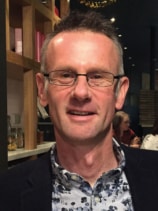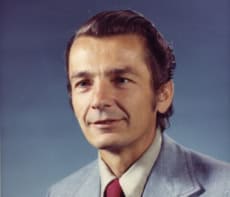Jon Newey is the owner of JPN Electrical, a small electrical contracting business in Worcester, UK. He was formerly involved with R&D of electronic materials and was later an editor of Compound Semiconductor magazine

What sparked your initial interest in physics?
As far back as I can remember I had an interest in how things worked, from items around the house, to the planets and stars. I’ve always enjoyed dismantling and building things, and having a working knowledge of the basics of physics helped with that. In my early years at high school I had a particularly good physics teacher. He was rather loud and outspoken on all subjects, not just physics, and his outbursts to students would be considered politically incorrect today. I actually found this rather refreshing. That, coupled with his fabulous practical demonstrations, kept me engaged and looking forward to physics lessons.
What did your BSc in physics focus on?
My degree was in applied physics, so the slant was towards practical applications, which suited me well. As I took a “sandwich” course, I spent a year in industry working for a company making mass spectrometers. This gave me a good grounding in some new areas including materials science, surface science, vacuum technology and electronics. I was even sent abroad to install an instrument at a steel works.
Did you ever consider a permanent academic career in the physical sciences?
It never occurred to me to stay in academia. By the time I graduated I was keen to get out into industry or the practical side of research and development. A recession was under way, so jobs were thin on the ground. I managed to get funding to do an MSc in surface science. From there I made a contact at the Royal Signals Radar Establishment (now QinetiQ) in Malvern, UK, where there was a renowned crystal growth department. When a vacancy arose in the materials characterization department, I applied and was offered the job piloting the two magnetic sector mass specs.
How did you get into technology journalism?
My work at Malvern was mostly with the semiconductor growth teams. As well as bulk-crystal growth there was a big effort in thin-film growth for semiconductor devices, and a lot of this was in compound semiconductors, which back then was a niche technology compared with silicon. A former colleague went to the US to work for a small publishing company that produced a magazine on the compound semiconductor industry. When that company was sold to IOP Publishing [which also publishes Physics World] I was asked if I’d like to work alongside the editor in the UK office.
I really enjoyed the work on Compound Semiconductor. At the time there was a buzz around compound semiconductors. The industry was gearing up to supply devices for the low-energy lighting revolution; emerging smartphone devices; and the roll-out of faster fibre-optic networks, which were starting to replace copper cable networks in towns and cities globally.
You retrained as an electrician – what were the challenges in doing that?
I started studying electrical installation courses out of interest through evening classes at my local college. By then my contract at IOP Publishing was coming to an end and I’d decided to work part-time for another publisher. I also had freelance editorial work for a government department and via business contacts that I’d made through the magazine. I was lucky because I had a reasonable income from this, and could work a little with a friend who was an electrician to gain important practical experience. I was able to grow the electrical business while still doing some freelance editorial work to plug the gaps.
Converting what’s studied in the classroom, to designing and fitting actual installations, is a steep learning curve. Then of course you need to build a customer base. I’ve been very fortunate to have some good regular business, including several companies that spun out of QinetiQ. I wanted to be self-employed for the flexibility it offered but you also need great discipline and time management when you’re running your own business.
How has your physics background been helpful in your work, if at all?
It definitely has been helpful, because it gives you an intuitive understanding of what’s going on or what might be going wrong, as well as the ability to step back and think things out logically. Electricians spend most of their time battling against Ohm’s law. The wiring regulations are a minefield, but the industry simplifies this down to an array of standard methods for doing most tasks. Unfortunately, this also leads to rigid adherence to these without really considering their origins. I recently saved a customer a lot of money by calculating that the existing main earthing conductor for the installation was of a sufficient size when another company wanted to pull the building apart to get a bigger cable in because “that’s the size we always use in these sorts of installations”.
Any advice for today’s students?
Stay curious. Not just about your own particular niche of physics, but also about what others are doing. Try and move around within your organization, as I did in Malvern. It’s increasingly rare for anyone to stay in the same field or with the same organization for all of their career. A well rounded and adaptable individual is far more employable.



